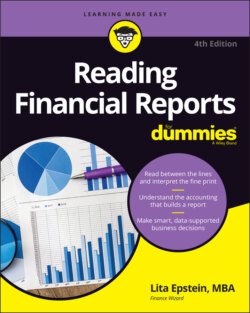Читать книгу Reading Financial Reports For Dummies - Lita Epstein - Страница 15
Checking Out Types of Reporting
ОглавлениеNot every company needs to prepare financial statements, but any company seeking to raise cash through stock sales or by borrowing funds certainly does. How public these statements must be depends on the business's structure.
Most businesses are private companies, which share these statements only with a small group of stakeholders: managers, investors, suppliers, vendors, and the financial institutions that they do business with. As long as a company doesn't sell shares of stock to the general public, it doesn't have to make its financial statements public. I talk more about the reporting rules for private companies in Chapter 2.
Public companies, which sell stock on the open market, must file a series of reports with the Securities and Exchange Commission (SEC) each year if they have at least 500 investors or at least $10 million in assets. Smaller companies that have incorporated and sold stock must report to the state in which they incorporated, but they aren't required to file with the SEC. You can find more details about the SEC's reporting requirements for public companies in Chapters 3 and 18.
Even if a firm doesn't need to make its financial reports public, if it wants to raise cash outside a very small circle of friends, it has to prepare financial statements and have a certified public accountant (CPA) audit them, or certify that the financial statements meet the requirements of the generally accepted accounting principles (or GAAP, which you can find out more about in the section “Keeping the number crunchers in line,” later in this chapter). Few banks consider loaning large sums of money to businesses without audited financial statements. Investors who aren't involved in the daily management of a business also usually require audited financial statements.
